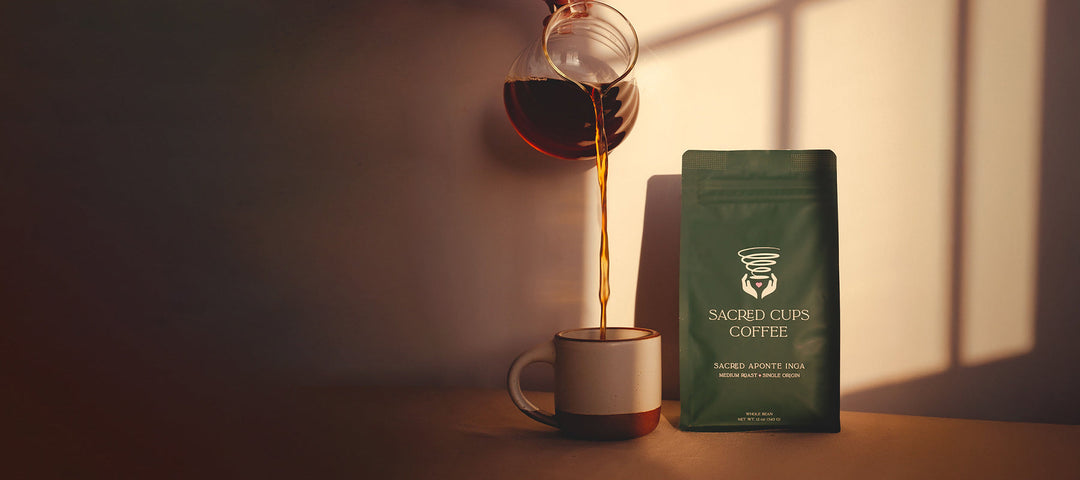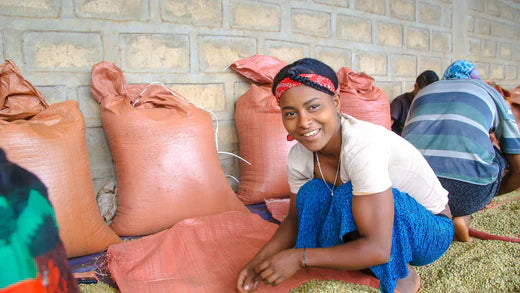Have you noticed this certification medallion on our packaging and wondered what it means?
The vision of Purity Coffee® is to improve the world’s health through coffee, but what does a “Bird-Friendly” certification have to do with health? And what does “bird-friendly” coffee have to do with healthy coffee? Because what is good for the birds is good for our health!

We have been buying Smithsonian Bird Friendly® coffee from dedicated farmers for the past two years, because the Smithsonian Bird Friendly® certification is the environmental gold standard in sustainable organic coffee beans production, which will help us achieve our vision for health with coffee for generations to come. Being certified organic is an essential requirement of Bird Friendly coffee, because pesticides and herbicides contaminate the soil and water and threaten the health of humans and wildlife.
Over the past year, our farm manager has made great strides in shifting to regenerative organic agriculture and working on achieving the standards necessary for us to get certified not only as best organic ground coffee, but also as Smithsonian Bird Friendly®, which is the only true certification that ensures truly shade-grown coffee. These same standards align closely with the principles behind cleanest cold brew coffee, reinforcing our mission to provide both environmental and human health benefits.
Here are a few things that the farm team has done to begin working towards the Smithsonian’s standards:
One of the key Smithsonian standards is having a buffer zone of native vegetation along streams and rivers. This standard has been met, since about 1/3 of our farm has a stream running through it that has a wide, indigenous forest with a vast biodiversity of plants, animals and insects.

The ducks enjoy walking in the forest along the stream.
In September, for the first time, our farm team discovered that a troop of monkeys had moved into our forest—this was a thrilling demonstration that our efforts to convert to regenerative organic were working more quickly than we had hoped! We got a couple of trail cameras that we will be installing this month to capture activities in the forest. We can't wait to share pictures with you!
Another benefit of having the forest is that the water is filtered and cleaned naturally, which in turn allows us to use mineral-rich and uncontaminated water on the coffee, keeping it healthy and pure. Also, shade trees influence the water cycle, which keeps the soils healthy, too, so maintaining these trees and the forest is critical to the health of the entire farm.

A bird started building a nest in one of the shaded coffee trees.
The rest of the farm is speckled with trees of various types for various purposes. Over the next few months we will be researching shade tree selection for planting more trees in certain lands that still need them, making sure the varieties either have synergistic or antagonistic effects on key coffee pests or diseases. In addition to shade, the forest and other trees support on-farm carbon sequestration, buffering temperatures, and minimizing water loss by reducing soil evaporation and coffee tree transpiration. These practices align closely with the principles behind pesticide free coffee, reinforcing our commitment to both environmental and human health.

Shade trees and planted trees (bananas) with “soft weed” covering the soil to prevent erosion.
Smithsonian standards require a layer of weeds and leaf litter. The weed species commonly found in shaded systems tend to be less competitive with coffee plants for resources than those under full sun, which allows more nutrition into the plant and the coffee seeds (a.k.a. the coffee beans that are eventually roasted and brewed).

This coffee land is next to our farm's border forest that you can see in the distance. Soft weeds keep the soil from erosion.
Also, layers of leaf litter provide rich organic matter that helps produce an abundance of soil microbial communities that are critical for plant health. These microbes make minerals and other compounds available to the plant for uptake, which, again, allows the coffee that we ultimately drink to be richer in nutrients. The healthy microbes also compete with or can be antagonists of microbes that can harm the plant, such as fusarium, which can contaminate coffee with a mycotoxin called deoxynivalenol (DON). DON can cause gastric discomfort in some people when they drink coffee contaminated with it, so preventing fusarium (both with microbes and correct soil pH) is important for both plant and human health.

Leaf litter surrounding the coffee under large indigenous shade trees.
As we work toward our organic certification and then our Smithsonian Bird Friendly® certification, we continue to study a large amount of research on coffee and health. The literature is not straightforward—there are actually a few cautions with too much shade, incompatible types of trees used that may bring unintended consequences, and sometimes a lack of nutrition if coffee trees are not supplemented with other organic fertilizers or compost. As with most things, striking a balance is key, and we remain committed to studying the best sustainable practices and implementing them. More on that in the months to come!
Finally, we need to support the move from industrial farming to coffee grown in its natural conditions. Having this certification allows the consumer to make educated decisions about coffee grown in an organic, natural way. Our certification licensing fees support the Smithsonian National Zoo and its programs.
This holiday season we’ll have a special Bird-Friendly® coffee we’re calling Hearth. A portion of the proceeds from this limited seasonal release will be donated to the Smithsonian’s Conservation Biology Institute’s Global Health Program which works to improve public health.
7 comments








Thanks for your enthusiastic support! We’re thrilled that you’re switching to Purity Coffee and sharing the word about bird-friendly coffee. Enjoy your coffee journey and the positive impact it brings!
I am so glad to have found and read this article on bird-friendly coffee. I just wish I had known about it sooner. I will be sharing this information as much as possible. I will also be changing my brand of coffee. Purity sounds wonderful.
———
Purity Coffee replied:
Thanks for your enthusiastic support! We’re thrilled that you’re switching to Purity Coffee and sharing the word about bird-friendly coffee. Enjoy your coffee journey and the positive impact it brings!
More companies should follow your example instead of providing products that comprise immune systems.
So very impressed with purity coffee & your missions. I am a loyal customer & would not use anything else!
I am absolutely delighted by this news and so appreciate your concerted efforts to move toward earth-conscious farming, as one of my passions is permaculture/no till/food forest gardening.
I began drinking your coffee last year. Since then, each time I enjoy a cup of Purity coffee, I have increasingly experienced what can only be described as a “high”; not jitters – I honestly get high! Crazy, huh? My conclusion can only be that your careful intention to create a product that betters humanity’s experience, and to work with Mother Nature instead of against her is honoring the spirit of the plant, thus allowing it’s true power to be realized.
Blessings to you all. 💚 🌳
Leave a comment